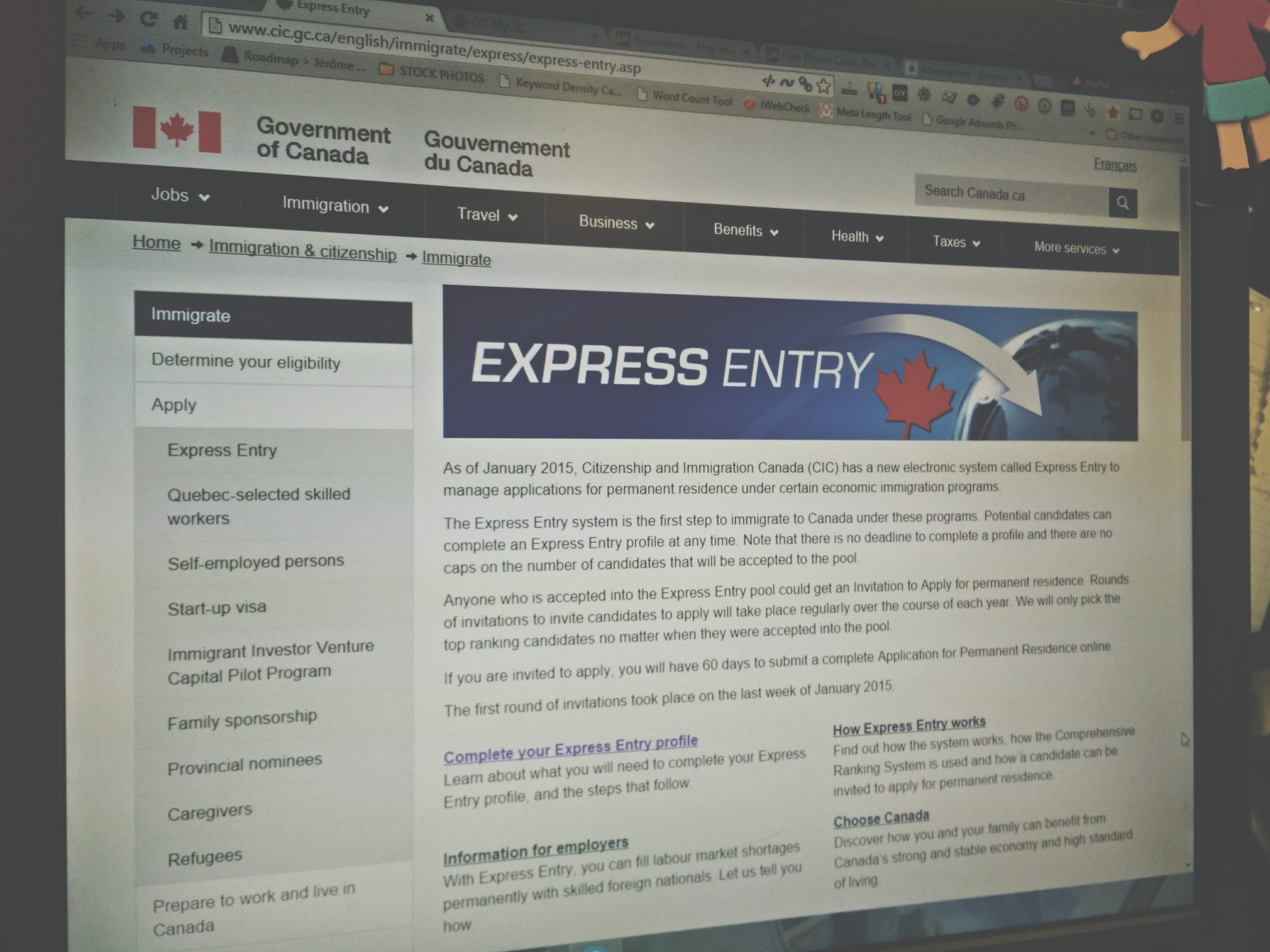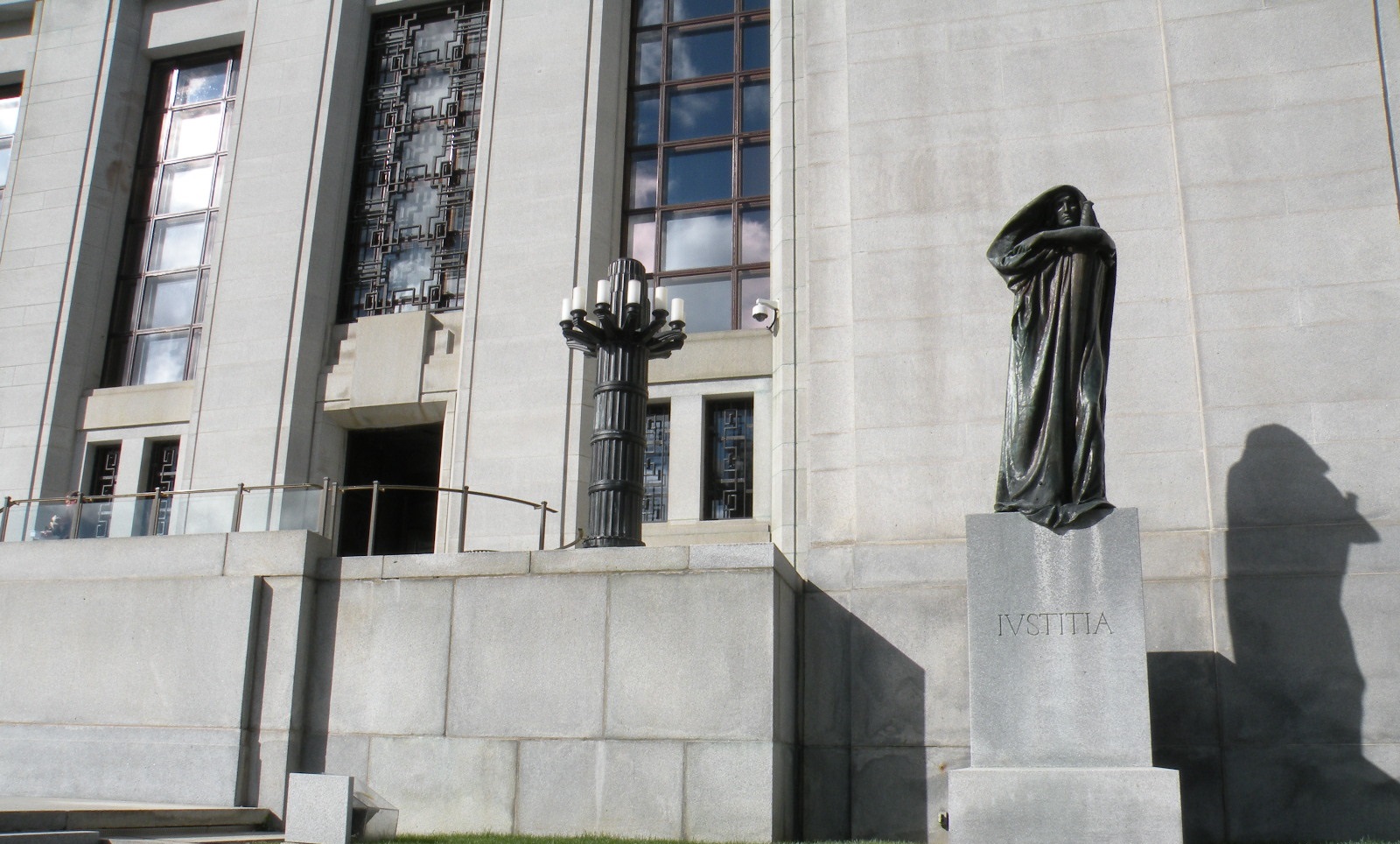Canadian Immigration Lawyers Discuss Express Entry
How Canadian immigration Lawyers help immigrants obtain full residency in Canada through the newly implemented Express Entry
Canada proudly welcomes newcomers to our country. Our melting pot demographics are part of what makes Canada so diverse. In 2015, Citizenship and Immigration Canada (CIC) created a new system that fast tracks the process of obtaining permanent residency: Express Entry. Becoming a Canadian citizen can seem like overwhelming daunting goal. Luckily, Canadian immigration lawyers are pleased to offer their services and expertise. In order to become a Permanent Resident and then a Canadian citizen, one must go through a number of steps. This can prove to be difficult for those unfamiliar with our immigration system. Fortunately, you don’t have to do it on your own; there are many Canadian immigration lawyers that can help you with the Express Entry process. If you or someone you know is looking to apply for permanent Canadian residency contact a Canadian immigration lawyer. They will assist you in all aspects of your application.
What is Express Entry?
Applying for permanent residency in Canada can be time consuming and can take years to process. The Express Entry system gives non-Canadian residents the chance of receiving full residency in Canada on a more expedited basis. In order to be eligible for Express Entry non-Canadian residents must qualify for one of the two immigration programs: the Federal Skilled Worker Program or the Canadian Experience Class program. Applicants who are nominated by Ontario for permanent residency or have an LMIA (Labour Market Impact Assessment) approved job offer get 600 out of 1200 points, putting them at a significant advantage in receiving an Invitation to Apply (‘ITA’) from CIC. The Applicant must meet other strict criteria to obtain the necessary points and qualify for Express Entry. Some of the factors that influence qualifying for Express Entry are education, skills, work experience, language ability and finances.
How do I apply?
Hiring a Canadian immigration lawyer to assist with your Express Entry application can increase your chances of acceptance. Canadian immigration lawyers will do everything to help grant you Express Entry into Canada. Your lawyer will create your profile and complete the required information. Then CIC will review the Applicant’s profile on a competitive basis along with other candidates in the pool, and decide whether to select the candidate for an Invitation to Apply. The candidates who score the highest will be put into a separate pool. In each round of invitations, CIC offers ITAs to a select group of applicants from that pool to apply for permanent residency. Hiring a Canadian immigration lawyer to advise your throughout the process is highly recommended, as they have the experience on how best to navigate the system.
Canadian immigration lawyers are well-versed in handling Express Entry applications. If you need assistance or guidance, don’t hesitate to contact a Canadian immigration lawyer. They’ll be more than willing to answer any questions you have regarding immigrating to Canada.
Immigration Lawyers in Canada Facing New Challenges
Policy Changes, Clerical Errors, and Communication Failures by Citizenship and Immigration Canada Making Immigration Harder than Ever
Immigration lawyers in Canada have had their work cut out for them in recent years. Amidst extraordinarily long wait times for processing applications, cases being permanently closed at the fault of errors on the side of Citizenship and Immigration Canada, and changing rules and regulations that seem to critics and would-be immigrants alike to only create further roadblocks, becoming a resident of Canada seems now to be harder than ever for all but a select and fortunate few.
Last month, a damning two-part article appeared in the Toronto Star, chronicling the stories of the struggles of several individuals trying to gain access to the country as permanent residents or citizens, only to have their cases mishandled or to be punished for minor application errors. In some cases, applicants weren’t informed of the status of their applications, or had their applications denied due to their failure to follow up on requests for additional information—requests which, in the cases outlined in the article, were never received in the first place.
In one case, that of 76-year-old Nevenka Momcilovic, after a seven-year wait on a family sponsorship application, she is facing deportation after a simple error made on her application to renew her temporary visitor visa. Momcilovic’s husband died in Croatia in 2007, after which her son Djordje, a 48-year-old Canadian citizen, invited his mother to live with him. It was then that they began the process of sponsorship, which already takes as much as 47 months to process when sponsoring parents or grandparents.
Last year, Citizenship and Immigration Canada raised the application fee for a temporary visa from $75 to $200, a fact of which the Momcilovic family were unaware. Now the CIC refuses to re-open the case, which was closed after this small and not-unreasonable error.
Immigration lawyers in Canada are seeing similar cases all over, where cases are either caught in limbo for years (sometimes even longer than their already-too-long estimated wait times) or are terminated after clerical errors on the part of Citizenship and Immigration Canada.
These difficulties faced by immigrants are variously preventing family reunification (and in some cases leaving family members, including small children, stranded in conflict regions), making it impossible for people to perform their jobs or attend the schools that they have paid expensive tuitions at, and made legitimate marriages between people from different countries incredibly difficult affairs. While immigration lawyers in Canada do all that they can to assist people in need, many critics are calling for changes to ensure that people have a fair chance in the system in the future.
Permanent Resident Lawyers See Delays in Spousal Sponsorship
Canadians Facing Troubling Delays Should Seek the Help of an Immigration Lawyer
In Canada, if a Canadian citizen marries a foreign national, they can sponsor their spouse, with the help of an immigration lawyer, for permanent residency under the Family Class. Being a permanent resident will not only allow this spouse to live, study, and work in Canada, but to begin their new life with their partner.
Permanent resident lawyers explain that Canadians have the option of sponsoring their spouse from within Canada (inland), if the spouse is already here legally with valid temporary status, or from abroad (overseas), within their spouse’s home country. As you can imagine, most prefer to do so from Canada, so that they don’t have to be separated while an application is in process overseas, or have to give up their career in Canada to be with them.
Regardless of whether you are an inland or an overseas applicant, there are two steps in the process. The first stage is the initial assessment of the sponsor’s eligibility, and the second stage is an examination of the sponsored spouse, which includes criminal and health clearance. As with all permanent residency applications, both steps can be made easier with the help of a permanent residency lawyer.
In recent years, immigration lawyers have seen processing times for immigration applications for foreign spouses already living in Canada increase drastically. In 2013 processing time for the first stage was 6 months, and the second stage was 8 months. In 2014 the processing time for the first stage increased to 12 months, and in 2015 times for the first stage tripled to 17 months, and increased to 10 months for the second stage, for a total of 27 months.
Permanent resident lawyers are seeing many Canadians waiting more than two years to acquire permanent resident status for their foreign spouses living in Canada. This is problematic for a number of reasons, but most notably is the effect that it has on both the lives of the applicants and their Canadian spouses. While they are waiting, their lives are essentially put on pause. As many immigration lawyers know all too well, these applicants are not allowed to work, can’t access healthcare, education or travel abroad. The Canadian spouse is forced to support their family, having children becomes a challenge due to the lack of access to healthcare, and these spouses cannot visit their family members abroad.
If you’re in the process of sponsoring your spouse for permanent residency, and you need help navigating these applications and understanding these delays, contact a permanent resident lawyer today.
Treatment of Immigration Detainees Violates Human Rights
A new report sheds light on the inadequacy of Canada’s immigration detention system in dealing with migrants suffering from mental health issues
On June 18th, the University of Toronto’s International Human Rights Program released a report scrutinizing the Canada Border Service Agency’s (CBSA) practices in treating migrant detainees suffering from mental health issues. Titled “We Have No Rights”, the report focuses on CBSA policy of placing detainees who have, or who later develop, mental health issues into maximum security prisons, where they are subjected to indefinite detention and substandard conditions despite not having committed any crimes. It is noteworthy that Canadian immigration and refugee lawyer and the Canadian Council for Refugees have raised serious concerns about these issues in the recent years.
According to the report, the practice of transferring detainees to provincial jails is premised on the fact that the immigration detention centers, in addition to being overcrowded, are ill-equipped to address mental health issues. As a result, detainees are transferred to maximum security prisons which are deemed more capable of providing them with better access to health care. However, the report’s findings indicate that better access to health care is far from reality for these detainees. Canadian immigration and refugee lawyers are urging that clients impacted by these circumstances need to bring their case forward to a legal representative and inquire if steps should be taken in Federal Court on their behalf.
In fact, according to the Report, medical conditions in detention go untreated for prolonged periods of time, leading to a prevalence of issues such as depression and anxiety, as well as exacerbating pre-existing conditions. The report states that once in jail, the detainees are essentially treated like convicts by being placed into windowless cells where they are isolated for long periods at a time, and made to wear the same prison jumpsuits as inmates, effectively labelling them as criminals despite not having committed any crimes. But unlike the persons convicted of criminal offenses with whom they share living quarters, immigration detainees have no way of knowing when or if they will be released, and in certain cases spend years in detention. Canada’s immigration and refugee lawyers are arguing that this violates the constitutional rights enshrined in the Canadian Charter of Rights and Freedoms.
Although Canada’s immigration laws allow for lengthy detention of foreign nationals under certain circumstances, such as ensuring compliance with immigration orders or protecting the public, there are concerns that the CBSA practices with respect to detainees go well beyond achieving these objectives. As the IHRP report indicates, the CBSA’s practices in treating detainees are more severe than those of other Western countries, including the UK and the US, where there is a presumption against detention exceeding 90 days. By contrast in Canada, once a reviewing body determines that a migrant should be detained, they essentially place a heavy burden on that migrant to show compelling grounds as to why the subsequent reviewer should come to a different decision. This heavy burden effectively prolongs the length of detention for many migrants, and consequently places further strain on their already fragile mental states.
This is precisely why obtaining timely legal representation is crucial in immigration detention cases. A Canadian immigration lawyer can help determine whether the immigration authorities actually have a legal basis for detaining an individual and fight those detentions made without a legal basis. In addition, Canadian immigration lawyers can also work to prevent detentions from becoming indefinite by providing the reviewing body with alternatives that could justify release from custody.
The Effects of Canada's Immigration Changes Evident in New MIPEX Data
A Step Backwards Say Many Immigration Lawyers in Canada
Immigration in Canada has seen a number of policy changes over the past year, making the process more difficult for both new and existing immigrants. If there was any question as to the effects of these changes, new data from the Migrant Integration Policy Index (MIPEX) has the answers. In the latest world ranking, which is based on 167 indicators and includes 38 developed countries, Canada moved from third to sixth place in providing migrants access to equal rights, support and opportunity.
One area where Canada saw a substantial decline was in the “access to nationality” category. In 2010 Canada scored a MIPEX score of 71 out of 100 points, while this year that category score dropped to 67 points. If you ask any immigration lawyer in Canada, they’ll probably tell you this decline is no surprise. Canada is making it more difficult to become Canadian, first by raising the citizenship application fee to over $500 (a 430 percent markup from 2013) as well as by increasing the difficulty of the citizenship test.
Another area where immigration in Canada fared poorly was the “secure from state arbitrariness” category. With a mere 23 points, Canada’s score was much lower than that of Australia, New Zealand, the United States as well as the European average. Again, any immigration lawyer in Canada could have seen this score coming after recently introduced laws give the government permission to revoke citizenship from dual citizens for certain crimes instead of using our existing criminal justice system.
Finally, with a 15-point drop (from 79 in 2010 to 64 in 2015) in the “eligibility for sponsoring family members” category, it’s evident that immigration in Canada has also been greatly affected by recent reunification changes. Some of these new restrictions include increasing the sponsorship commitment from 10 to 20 years, reducing the age of dependents from 22 to 19 years, increasing the income requirement for sponsoring parents and grandparents by 30 percent and increasing the requirement period. According to the MIPEX report these new restrictions, “expect immigrant families to live up to standards that many national families could not.”
If you ask any immigration lawyer in Canada, they’ll tell you that while this information does show areas that need improvement, it doesn’t mean Canada is a bad place to live. In fact, Canada’s immigration system still leads in labour market integration, anti-discrimination and creating a sense of belonging for newcomers. While immigration in Canada has certainly taken a few steps backwards, in many ways it is still ahead.
For more information on the changes to immigration in Canada, contact an immigration lawyer in Canada today.
Photo: Justitia (Roman goddess of justice) statue outside of the Supreme Court of Canada in Ottawa.





